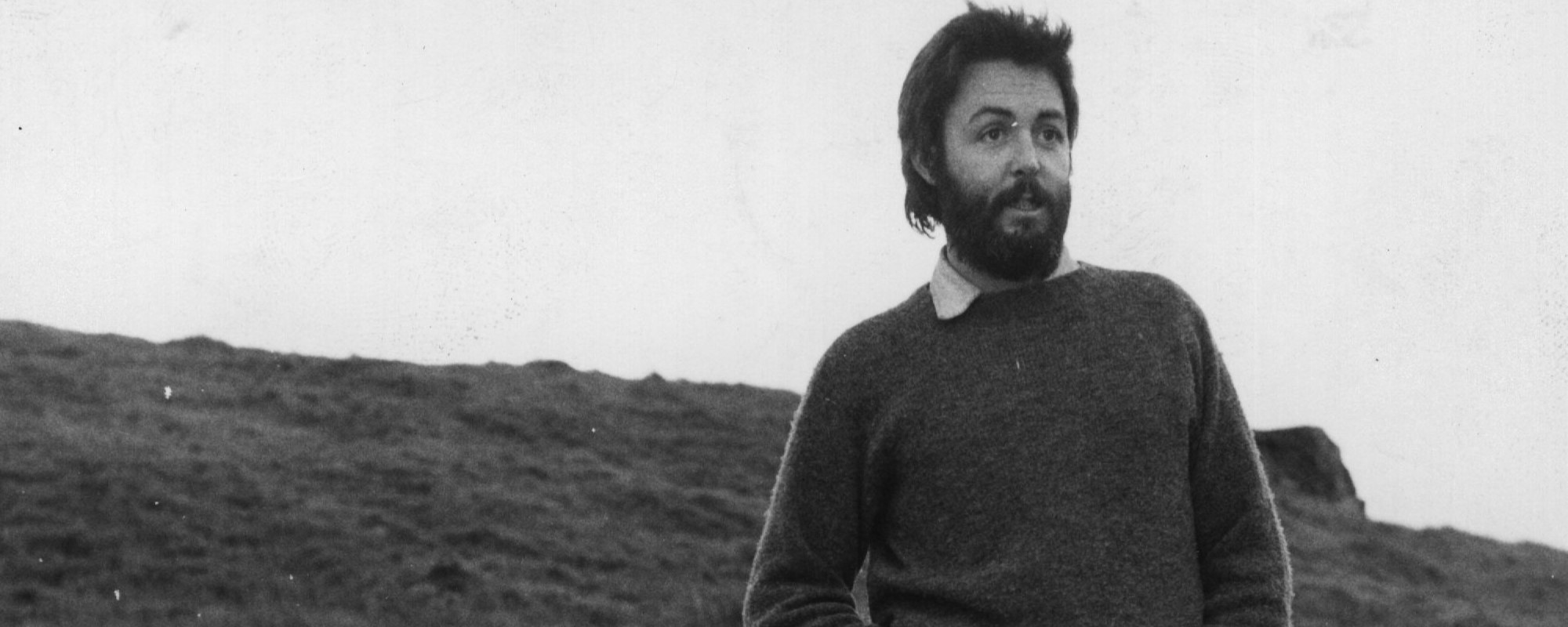R.E.M. helped to popularize the concepts of college radio and alternative music in the 80s. But their talent and ambition simply proved too vast for them to stay underground for too long. At some point, they were bound to break out.
Videos by American Songwriter
Oddly enough, when they did achieve their big pop radio breakthrough, it came with a song that sounded as heavy as anything they’d ever done. And it featured lyrics that made the guy who wrote them quite uncomfortable, to the point where he wondered if the song should even be released.
Rising Radio Success
R.E.M.’s first single, “Radio Free Europe”, arrived via a tiny record label in 1981. Lead singer Michael Stipe hadn’t quite polished up the lyrics to the song, which is why he kind of mumbles his way through them. Two years later, the band would re-record the song in a more polished form. A college radio sensation, it made it to no. 78 on the pop charts.
That result wasn’t bad at all, considering that the band was composed of relative nobodies from the college town of Athens, Georgia. R.E.M.’s material in the early parts of their career didn’t exactly spill over with commercial prospects. The musical interplay oozed intricacy and spark, but didn’t hit you over the head with big hooks. Stipe’s lyrics tended towards vagueness and inscrutability.
The band did start to find a home at MTV, which helped them muscle their way to some rock radio airplay. Songs like “So. Central Rain (I’m Sorry)”, “I Can’t Get There From Here”, and “Fall On Me” made some inroads. But it wasn’t until the making of the 1987 album Document that the band made a pop splash.
The Darkness of “Love”
“The One I Love” began as a riff, played by guitarist Peter Buck. The crunching nature of it hit a bit harder than the usual R.E.M. sound to that point. It spurred Buck, Mike Mills, and Bill Berry into composing a piece of music that was both powerful and dark. Which might explain where Michael Stipe came up with the lyrics.
Stipe added a bit of misdirection with the main line in the song: “This one goes out to the one I love.” In the context of the menacing music, the sentimental vibe seems a bit askew. Indeed, it isn’t long before the narrator admits that the person he’s referencing doesn’t mean that much at all to him: “A simple prop to occupy my time.”
When you get right down to it, the guy at the heart of “The One I Love” is a nasty individual. Not only has he treated this girl poorly, but at the end of the song, he hints that he’s about to do the same to another victim. The one-word refrain of “Fire” also implies something demonic and destructive.
A Nasty Hit
In later interviews, Stipe claimed that there was no specific target he had in mind when writing the lyrics. He also expressed regret that the band even released the song. It didn’t help that many listeners who didn’t focus closely enough on the lyrics heard “The One I Love” as a heartfelt song of devotion.
Stipe’s regrets notwithstanding, the noirish drama within the song quickly carved out a path for radio success. It made it all the way to no. 9 on the US pop charts in 1987, a much better performance than the band had ever previously achieved. “The One I Love” was somewhat unloved by its singer, but the mass audience had the final say.
Photo by Jeff Kravitz/FilmMagic











Leave a Reply
Only members can comment. Become a member. Already a member? Log in.